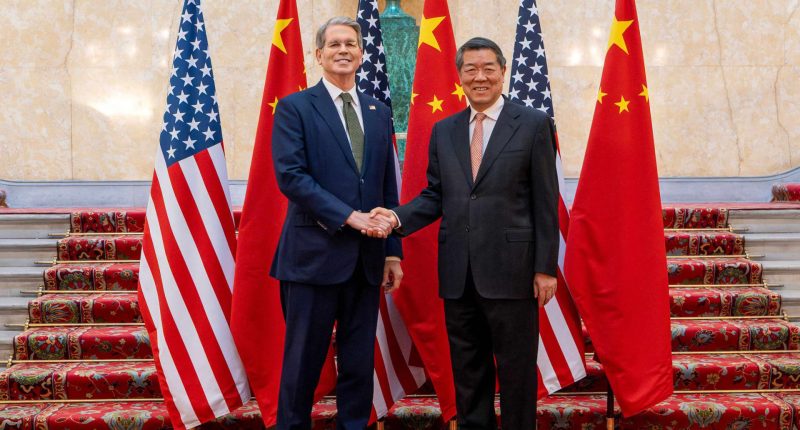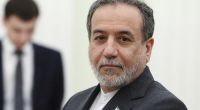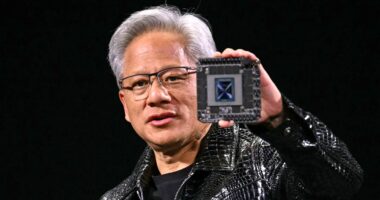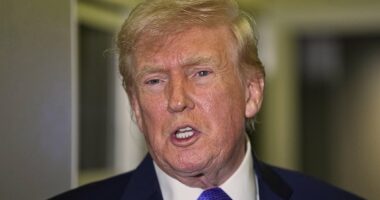Share this @internewscast.com
China’s Ministry of Commerce in Beijing.
Visual China Group | Getty Images
The U.S. and China have confirmed details of a trade framework that seeks to allow rare earth exports and easing of tech restrictions, according to a statement released by China’s Ministry of Commerce on Friday afternoon.
China will review and approve export applications for items subject to export control rules, while the U.S. will correspondingly cancel a range of existing restrictive measures imposed against Beijing, a spokesperson for the ministry said in the statement, without elaborating.
The statement comes after U.S. President Donald Trump said Thursday at an event in the White House that “we just signed with China yesterday.” A White House official later clarified that the administration and China had agreed to “an additional understanding of a framework to implement the Geneva agreement.”
Earlier this month, trade negotiation teams from both sides, led by U.S. Treasury Secretary Scott Bessent and Chinese Vice Premier He Lifeng, reached an agreement on implementing the Geneva consensus after two days of high-level talks in London.
U.S. Treasury Secretary Scott Bessent and Chinese vice premier He Lifeng meet in London, Britain June 9, 2025.
United States Treasury | Via Reuters
The London agreement stabilized what had become a fraught relationship, with Washington blaming China for slow-walking on relaxing rare earths curbs and Beijing criticizing the U.S. tech restrictions and student visa revocation.
While China’s latest statement is “encouraging,” it is important to temper expectation, said Alfredo Montufar-Helu, senior advisor for the China center at think tank The Conference Board, pointing to the lack of details on which rare earth export curbs will be relaxed, other than magnets.
As both sides view the rare earths as “a crucial bargaining chip in future negotiations,” trade in these goods will likely remain constrained, Montufar-Helu added.
Following the initial trade meeting in Geneva in mid-May, Washington and Beijing had struck a preliminary agreement to suspend a majority of tariffs on each other’s goods for 90 days and to roll back certain restrictive measures.









